Disasters are described as major incidents where people are injured or killed and which cannot be managed with the means of locally available infrastructure. A distinction is generally made between natural and technological disasters, even though some researchers question the usefulness of this classification.
What is special about disaster research is that it involves a variety of natural science and humanities disciplines, such as history, geography, sociology, literature, theology, psychotraumatology, geosciences and engineering. Interdisciplinarity is often called for, but rarely realised, apart from interdisciplinary anthologies, where individual contributions usually represent only one subject and are therefore not interdisciplinary in themselves.
It is therefore desirable to have an approach that simultaneously takes into account different perspectives and the fact that both individuals and collectives are equally affected by disasters. Consequently, a combination of psychoanalytical and ethnological approaches can be useful, as the focus is on the individual on the one hand and on the group on the other. The meaningfulness of this approach is also made clear by terms that have great significance in the context of disasters and biographical interviews, namely “vulnerability” and “resilience” as well as “identity”, because they are used by the psychological as well as the social sciences, each with a different accentuation.
Psychoanalytical-ethnological disaster research is not synonymous with ethnopsychoanalytical approaches, because the latter want to explore cultures with the help of psychoanalysis, while the latter is characterised by a more open horizon, in that an equal-ranking cooperation of both disciplines is striven for, and in doing so, methods of ethnological narrative research are also resorted to. Moreover, “psychoanalysis” is understood here in a broader sense, namely, as is customary in the FRG, for example, as a synonym for “psychodynamic theories”, by which is meant not only the teachings of Sigmund Freud, including further developments, but also those of Alfred Adler and Carl Gustav Jung.
In order to draw attention to both individual and collective aspects, small communities that have been affected by disasters can be used. The time of the disaster should be several years or several decades ago in order to find out more precisely how vulnerable or resilient the individuals or the collective have proven to be.
Head: Univ.-Prof. Mag. DDr. Bernd Rieken, e-mail
Conferences
1) “Narrating about catastrophes”, 03.-06.09.2014 at Alpenhotel Gösing, 3221 Gösing an der Mariazellerbahn. Conference of the Commission for Narrative Research in the German Folklore Society.
Publication:
Rieken, Bernd (Hrsg.): Erzählen über Katastrophen. Beiträge aus Deutscher Philologie, Erzählforschung und Psychotherapiewissenschaft. Münster, New York: Waxmann 2016 (Psychotherapiewissenschaft in Forschung, Profession und Kultur. Schriftenreihe der Sigmund-Freud-Privatuniversität, Bd. 16).
2) “Fear in Disaster Research”, 06.06.-09.06.2018 at Alpenhotel Gösing, 3221 Gösing an der Mariazellerbahn.
Conference with the disaster network KatNet, c/o Katastrophenforschungsstelle (KFS), Freie Universität Berlin.
- Call for paper: Tagung Juni 2018.pdf
- Tagungsprogramm 2018 – Kurzübersicht.pdf
- Tagungsprogramm 2018 – ausführlich.pdf
Publication:
Rieken, Bernd (Hrsg.) 2019: Angst in der Katastrophenforschung. Interdisziplinäre Zugänge. Münster, New York: Waxmann (Psychotherapiewissenschaft in Forschung, Profession und Kultur, Bd. 27).
3) Conference “Eco-Anxiety” – Future Anxiety and Climate Change. Interdisciplinary approaches, SFU Vienna, 25.11.-28.11.2020
The conference was cancelled due to the Corona lockdown, instead an anthology on the topic was published.
Publication:
Bernd Rieken, Reinhold Popp, Paolo Raile (Hrsg.): Eco Anxiety – Zukunftsangst und Klimawandel. Interdisziplinäre Zugänge. Münster, New York: Waxmann 2021 (Psychotherapiewissenschaft in Forschung, Profession und Kultur. Schriftenreihe der Sigmund-Freud-Privatuniversität, Bd. 33)
Academic Activities on Disaster Research
Lectures
Exercise “Qualitative Interpretation”
5th semester, bachelor’s programme in psychotherapy science
led by Univ.-Ass. Dr. Anna Jank
Lecture series
1st semester, bachelor’s degree programme in psychotherapy science
led by Univ.-Prof. DDr. Bernd Rieken
Seminar “Methodology and Methodology of Psychotherapy Science 4”
4th semester, doctoral programme in psychotherapy science
led by Univ.-Prof. DDr. Bernd Rieken
Academic Theses
1) Bakkalaureat and Magister theses:
1.1) Christine Leutner: „Donauhochwasser 2002“ (finished)
Leutner Christine 2012: Ethnologische Katastrophenforschung: Donauhochwasser 2002 in Niederösterreich am Beispiel ausgewählter Regionen. Wien, Univ., Dipl.-Arb. Europäische Ethnologie.
Publication:
Wiedersich (Leutner), Christine 2016: Donauhochwasser 2002 in Niederösterreich am Beispiel ausgewählter Regionen. In: Rieken, Bernd (Hrsg.): Erzählen über Katastrophen. Beiträge aus Deutscher Philologie, Erzählforschung und Psychotherapiewissenschaft. Münster, New York: Waxmann (Psychotherapiewissenschaft in Forschung, Profession und Kultur, Bd. 16), S. 275–283.
1.2) Jaqueline Marylin Vessely: „Absturz des Swissair-Fluges 306 in Dürrenäsch und der Tod von 43 Personen aus dem Dorf Humlikon im Jahre 1963“ (ongoing)
Publication:
Vessely, Jaqueline Marylin 2019: Mauer des Schweigens. Versuch einer Verarbeitung zweier Dörfer nach dem Swiss-Air-Absturz 1963. In: Rieken, Bernd (Hrsg.): Angst in der Katastrophenforschung. Interdisziplinäre Zugänge. Münster, New York: Waxmann (Psychotherapiewissenschaft in Forschung, Profession und Kultur, Bd. 27), S. 79–91.
1.3) Marlene Fitzka: „Der Absturz des Germanwings-Airbusses A320-211 im südfranzösischen Département Alpes-de-Haute-Provence am 24. März 2015“ (finished)
Publication:
Fitzka, Marlene 2022: Flug in den Tod. Der Absturz des Germanwings-Airbusses A320-211 im südfranzösischen Département Alpes-de-Haute-Provence am 24. März 2015. In: Zeitschrift für freie psychoanalytische Forschung und Individualpsychologie 9, Sonderheft 2. DOI 10.15136/2022.9.S2.1-108
1.4) Lisa-Marie Radl: „Wie effektiv sind Maßnahmen der Krisenintervention zur Prävention von Belastungsstörungen bei Flugbegleiterinnen und Flugbegleitern der Austrian Airlines?“ (Bakkalaureat thesis, finished)
Publication:
Radl Lisa-Marie 2022: Was beim Fliegen alles passieren kann. Krisenintervention zur Vorbeugung von Belastungsstörungen des Flugbegleiter-Personals der Austrian Airlines. In: SFU Forschungsbulletin SFU Research Bulletin 10, Heft 1, S. 26-49. DOI:10.15135/2022.10.1.26-4
2) Dissertations:
2.1) Brigitte Strohmeier: „Grubenunglück in Lassing/Steiermark 1998“ (finished)
Publications:
Strohmeier, Brigitte 2018: Das Grubenunglück von Lassing. Ein Beitrag zur Katastrophenforschung. Münster, New York: Waxmann (Psychotherapiewissenschaft in Forschung, Profession und Kultur, Bd. 23).
Strohmeier, Brigitte 2019: Über die Angstgenese der empirisch Forschenden im Kontext der Katastrophenforschung. Eine Illustration am Beispiel des Grubenunglücks in Lassing. In: Rieken, Bernd (Hrsg.): Angst in der Katastrophenforschung. Interdisziplinäre Zugänge. Münster, New York: Waxmann (Psychotherapiewissenschaft in Forschung, Profession und Kultur, Bd. 27), S. 93–105.
2.2) Anna Jank: „Sturmflut 1962 auf den Halligen in Nordfriesland“ (finished)
Publications:
Jank, Anna 2016: Die Sturmflut vom 16./17. Februar 1962 auf den Halligen Nordfrieslands. Ein Beitrag zur ethnologisch-psychoanalytischen Katastrophenforschung. In: Rieken, Bernd (Hrsg.): Erzählen über Katastrophen. Beiträge aus Deutscher Philologie, Erzählforschung und Psychotherapiewissenschaft. Münster, New York: Waxmann (Psychotherapiewissenschaft in Forschung, Profession und Kultur, Bd. 16), S. 241–250.
Jank, Anna 2019: Wilde Nordsee: Katastrophen-Erleben auf den Halligen Nordfrieslands. Eine psychoanalytisch-ethnologische Studie. Münster, New York: Waxmann 2019 (Psychotherapiewissenschaft in Forschung, Profession und Kultur, Bd. 25).
Jank, Anna 2019: Blinde Angst – oder wieso Sehen resilient macht. Sturmflutkatastrophen zwischen Deich und Hallig. In: Rieken, Bernd (Hrsg.): Angst in der Katastrophenforschung. Interdisziplinäre Zugänge. Münster, New York: Waxmann (Psychotherapiewissenschaft in Forschung, Profession und Kultur, Bd. 27), S. 127–135.
Jank-Humann, Anna 2023: Land unter – Für immer? Bedrohte Halligen. In: Horvath, Kathrin: Dimensionen. Wissenschaftsjournal Ö1, ORF. 14.02.2023, 19:05.
2.3) Nina Arbesser-Rastburg: „Erdbeben in Los Angeles“ (finished)
Publications:
Arbesser-Rastburg, Nina 2019: Magnitude der Angst. Erdbebenverarbeitung im Los Angeles County. In: Rieken, Bernd (Hrsg.): Angst in der Katastrophenforschung. Interdisziplinäre Zugänge. Münster, New York: Waxmann (Psychotherapiewissenschaft in Forschung, Profession und Kultur, Bd. 27), S. 59–77.
Arbesser-Krasser, Nina 2021: Coping with Shaking – Erschütterndes verarbeiten in Los Angeles. Ein Beitrag zur Katastrophenforschung. Münster, New York: Waxmann (Psychotherapiewissenschaft in Forschung, Profession und Kultur, Bd. 29).
2.4) Peter Schichan: „Angst – das vergessene Thema in der Katastrophenforschung“ (ongoing)
Dissertations in a broader context (resilience and security research):
2.5) Andrea Jerković: Die internationale Gemeinschaft und tertiäre Prävention auf dem Westbalkan: Von Dayton über Brüssel ins Niemandsland? – Der Comprehensive Approach auf dem Prüfstand. Diss. SFU 2012 (finished).
Publication:
Jerković, Andrea 2016: Die internationale Gemeinschaft und tertiäre Prävention auf dem Westbalkan: Von Dayton über Brüssel ins Niemandsland? – Der Comprehensive Approach auf dem Prüfstand. Hamburg: Disserta Verlag.
2.6) Florian Fritz: „Resilienz als Planungsgrundlage sicherheitsbezogenen Außenhandelns der EU“. Untersuchung individueller und kollektiver Resilienzfaktoren und Fallstudien der EU-Außen- und Sicherheitspolitik (finished)
Publication:
Fritz, Florian 2014: Resilienz als sicherheitspolitisches Gestaltungsleitbild. Faktoren und Metaphern in Fallbeispielen. Wien, Berlin: Lit (Schriften zur Rechts- und Kriminalsoziologie, Bd. 6).
2.7) Horst Rieger: Zur Bedeutung von Vulnerabilität und Resilienz für Individuen in High Reliability Organizations in Krisen. Eine Untersuchung in der Luftfahrtindustrie. Diss. SFU 2018 (finished).
Publication:
Rieger, Horst 2016: Individuelle Resilienz und Vulnerabilität in High Reliability Organisationen – Vorläufige Ergebnisse einer Studie in der Luftfahrtindustrie. In: SFU Forschungsbulletin, Heft 2, S. 1–16. DOI: 10.15135/2016.4.2.1-16
Thesis supervision
If you are interested in devoting yourself to empirical-qualitative disaster research in a master’s thesis or dissertation, you are welcome to contact us. Sufficient supervision, also taking into account the problem of counter-transference (fears in connection with field research, etc.), is guaranteed. Furthermore, theoretical papers can also be written.
Research points – Research Labs
ECTS points can be earned for smaller research projects within the framework of the degree programme (4th semester bachelor’s degree). Enquiries to Univ.-Ass. Anna Jank, e-mail: anna.jank@sfu.ac.at
Research Projects
1) Storm surge disasters on the Frisian North Sea coast (finished)
Publications:
Rieken, Bernd 2005: „Nordsee ist Mordsee“. Sturmfluten und ihre Bedeutung für die Mentalitätsgeschichte der Friesen. Münster, New York: Waxmann (Abhandlungen und Vorträge zur Geschichte Ostfrieslands, Bd. 83; Nordfriisk Instituut, Nr. 186) (zugleich Wien, Univ., Habilitationsschrift Europäische Ethnologie 2004).
Rieken, Bernd 2019: Autoethnografische und tiefenpsychologische Zugänge zum Phänomen Angst in der Katastrophenforschung am Beispiel der Nordsee-Sturmflut vom 16./17. Februar 1962. In: Rieken, Bernd (Hrsg.): Angst in der Katastrophenforschung. Interdisziplinäre Zugänge. Münster, New York: Waxmann (Psychotherapiewissenschaft in Forschung, Profession und Kultur, Bd. 27), S. 107–126.
Jank, Anna 2019: Wilde Nordsee: Katastrophen-Erleben auf den Halligen Nordfrieslands. Eine psychoanalytisch-ethnologische Studie. Münster, New York: Waxmann 2019 (Psychotherapiewissenschaft in Forschung, Profession und Kultur, Bd. 25).
2) Avalanche disaster in Galtür 1999 (finished)
Publications:
Rieken, Bernd 2010: Schatten über Galtür? Gespräche mit Einheimischen über die Lawine von 1999. Ein Beitrag zur Katastrophenforschung. Münster, New York: Waxmann.
Rieken, Bernd (Hrsg.) 2015: Wie bewältigt man das Unfassbare? Interdisziplinäre Zugänge am Beispiel der Lawinenkatastrophe von Galtür. Münster, New York: Waxmann (Psychotherapiewissenschaft in Forschung, Profession und Kultur, Bd. 10).
3) The avalanche disaster of Blons in the Great Walser Valley in 1954 (ongoing)
Publication:
Simon, Michael; Rieken, Bernd 2016: Die Lawinenkatastrophe von Blons im Großen Walsertal anno 1954. Ethnologische und psychoanalytische Zugänge. In: Bernd Rieken (Hrsg.): Erzählen über Katastrophen. Beiträge aus Deutscher Philologie, Erzählforschung und Psychotherapiewissenschaft. Münster, New York: Waxmann (Psychotherapiewissenschaft in Forschung, Profession und Kultur. Schriftenreihe der Sigmund-Freud-Privatuniversität, Bd. 16), S. 265–274.
4) “Eco Anxiety” – Fear of Climate Change (ongoing)
a.) Monographic paper (authors: Raile, Rieken),
b.) Interdisciplinary anthology on the topic of fear of the future and climate change (editors: Rieken, Popp, Raile).
Information on the anthology:
Exceptional weather phenomena such as the 2018 summer of drought and heat in northern and central Europe or the 2019/20 bushfires in Australia resonate widely in the media and in everyday narrative. Climate change issues are therefore no longer confined to the academic sphere. Rather, they are now also being discussed by broad sections of the population. This is made clear by the Fridays for Future movement, among others, but also by the sometimes violent reactions to it.
According to this, climate change evokes emotions, including fear or anxiety about the future. In the USA, there is already a separate term for this, namely “eco-anxiety”, which the American Psychological Association describes as “a chronic fear of environmental doom”.
The connection between climate change and fear or anxiety about the future will therefore be the focus of this new publication. This publication project is interdisciplinary. In this sense, the contributions come from different disciplines and research directions (e.g. psychotherapy science, psychology, disaster and security research, ethnology, geography, geology, climatology, historiography, futures research, theology).
Publications and lectures to date:
Rieken, Bernd 2019: Angst aus Nähe oder Distanz. Überlegungen zum Naturverständnis seit dem Mittelalter. In: Rieken, Bernd (Hrsg.): Angst in der Katastrophenforschung. Interdisziplinäre Zugänge. Münster, New York: Waxmann (Psychotherapiewissenschaft in Forschung, Profession und Kultur, Bd. 27), S. 15–26.
Raile, Paolo 2019: Eco-Anxiety. The Fear of Climate Change and its Consequences. Vortrag im Rahmen der Winter School an der Sigmund Freud PrivatUniversität Wien.
Winter School 2019: Eco Anxiety – presentation.pdf
https://www.youtube.com/watch?v=QQYCr9aKgfI
Bernd Rieken: Pandemien und Katastrophen. Couchgespräche der Vereinigung österreichischer Psychotherapeutinnen und Psychotherapeuten (VÖPP), Di, 17.03.2020. Internet: https://soundcloud.com/couchgespraeche/14-katastrophenforscher
Raile, Paolo 2020: Wo die Hoffnung zu Hause ist. Quellen der Resilienz in Zeiten von Weltuntergangsszenarien. Vortrag an der Sigmund Freud PrivatUniversität Wien.
Präsentation Tagung Islam und Umwelt.pdf
Raile, Paolo; Rieken, Bernd 2021: Eco Anxiety. Die Angst vor dem Klimawandel. Psychotherapiewissenschaftliche und ethnologische Zugänge. Münster, New York: Waxmann.
Lecture by Paolo Raile on the book Eco Anxiety at the Climate Study Group of SFU: https://youtu.be/_Z2fKq83kEA
Bernd Rieken: Psychotherapie, Klimawandel und Eco Anxiety. Gastvortrag im Rahmen der Vorlesung Medizinanthropologie, Prof. Dr. Mirko Uhlig. Johannes Gutenberg-Universität Mainz, Institut für Film-, Theater-, Medien- und Kulturwissenschaft, Fach Kulturanthropologie/Volkskunde 25.01.2022.
Spotify-Original-Podcast zum Thema Eco-Anxiety Paolo Raile (18.09.2022)
Raile, Paolo 2023: Psychotherapeutic Multi-Approach-Perspectives on Eco-Anxiety. Frontiers in Psychology 14, 1162616.
Raile, Paolo 2023: Poetry Therapy and Eco-Anxiety – A Case Study. Journal of Poetry Therapy 36, 2203833.
Raile, Paolo 2023: Einsamkeit und Gemeinschaft als Einflussfaktoren im Umgang mit Eco-Anxiety. Vortrag im Rahmen der Fachtagung Einsamkeit und Beziehung des Alfred-Adler-Instituts München.
5) Psychotherapeutic and ethnological aspects of the Corona pandemic
Publications:
Bric, Benjamin & Raile, Paolo (2020): Installing an Innovative Helpline at the Psychotherapeutic Outpatient Clinic of the Sigmund Freud University in Vienna during the COVID-19-Crisis. In: International Journal of Mental Health Promotion, 22, 3, S. 133-147. DOI:10.32604/IJMHP.2020.011375
Raile, Paolo; Diem, Anna Maria; Duda, Patrizia, Gren, Maria & Riegler, Elisabeth (2021): Die CoViD-Krise in Selbstreflexionen. Selbsterfahrungsberichte psychotherapiewissenschaftlich interpretiert. In: Psychotherapie-Wissenschaft, 11 (1 ), 37-47.
Rieken, Bernd (2020): Das Corona-Virus, die Heilige Corona und der Wintersportort Ischgl. In: Zeitschrift für freie psychoanalytische Forschung und Individualpsychologie 7, Heft 2, S. 61-78. DOI: 10.15136/2020.7.2.61-78
Rieken, Bernd (2021–2022): Über eine Bahnfahrt während des strengen Corona-Lockdowns im November 2020. Publikationen:
1.) Der letzte Zug nach Bad Gleichenberg. REPORTAGE. Eine Bahnfahrt von Baden in den südoststeirischen Kurort: Ein Bahnliebhaber über eine Reise während des Lockdowns. In: Kleine Zeitung, Südoststeiermark, 13.02.2021, S. 24–25. Im Internet betitelt mit „Start der Gleichenberger Bahn. Reportage eines Bahnliebhabers über eine Reise während des Lockdowns“: https://www.kleinezeitung.at
2.) Geschichte und Geschichten: Mit Gleichstrom nach Bad Gleichenberg. In: Modelleisenbahner, Heft 11, 2021, S. 42–46.
3.) Der letzte Zug nach Bad Gleichenberg. Über die Melancholie des Bahnfahrens während des strengen Corona-Lockdowns im November 2020. In: Zeitschrift für freie psychoanalytische Forschung und Individualpsychologie 9, Heft 1 (2022), S. 108–132. DOI: 10.15136/2022.9.1.108-132
Rieken, Bernd (Hrsg.) (2022): Zeitschrift für freie psychoanalytische Forschung und Individualpsychologie, Nr. 1 (2022): Schwerpunktthema Corona. DOI: https://doi.org/10.15136/2022.9.1
Articles:
- Gabriela Pap, Brigitte Sindelar: Dank Covid anständig psychisch krank. Zur Entstigmatisierung psychisch kranker Kinder und Jugendlicher und ihren Eltern, S.1–31.
- Gabriela Pap, Vivien Kain, Julia Polz, Julia Deimel: Die Macht des goldenen Ninja-Stickers. Bedeutung und Auswirkungen der Impffrage für Kinder und Jugendliche, S. 32–53.
- Vanja Minić, Valerie Hofbauer, Jasmin Ghazanfari: Angst vs. Aggression. Tiefenhermeneutische Kulturanalyse der dominanten Emotionen der ersten beiden Lockdowns, S. 54–90.
- Elisabeth Angerer, Anna Lena Fellinger, Niccola Liedl, Severin Pühringer, Julia Rathwallner: HUMOR – Sonst kriegen wir noch die Krise. Forschungsarbeit zum Thema Humor in der Corona-Pandemie, S. 91–107.
- Bernd Rieken: Der letzte Zug nach Bad Gleichenberg. Über die Melancholie des Bahnfahrens während des strengen Corona-Lockdowns im November 2020, S. 108–132 [s.o.].
Publications
List of Publications
Presentations and interviews available online (selection)
- Pandemien und Katastrophen – DDr. Bernd Rieken – part 1, April 2020
- Pandemien und Katastrophen – DDr. Bernd Rieken – part 2, April 2020
- Nordsee ist Mordsee? Interview with Bernd Rieken by Audible Magazin, 06.12.2019
- Bedrohte Identität. Katastrophenbewältigung aus psychoanalytischer Sicht Lecture series at the Ludwig-Maximilians-Universität München, WS 2014/15
- Katastrophe und Identität: Individuelle und kollektive Aspekte von Vulnerabilität und Resilienz 6. KatNet Conference 2012
- Die Friesen – Gespräch mit Bernd Rieken Radio Bremen: Mare Radio Podcast, 02.06.2011
Overview of Monographs and Anthologies (in German)
 |
Nordsee ist MordseeSturmfluten und ihre Bedeutung für die Mentalitätsgeschichte der Friesen 2005, 456 Seiten, broschiert, 39,90 €, ISBN 978-3-8309-1499-0 |
|
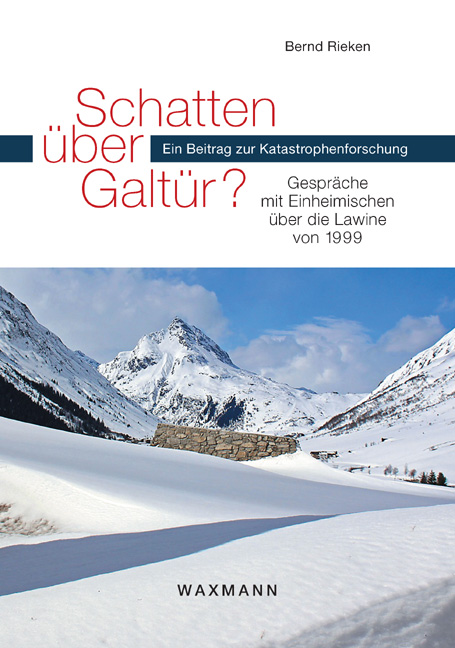 |
Schatten über Galtür?Gespräche mit Einheimischen über die Lawine von 1999 2010, 216 Seiten, broschiert, 19,90 €, ISBN 978-3-8309-2336-7 |
|
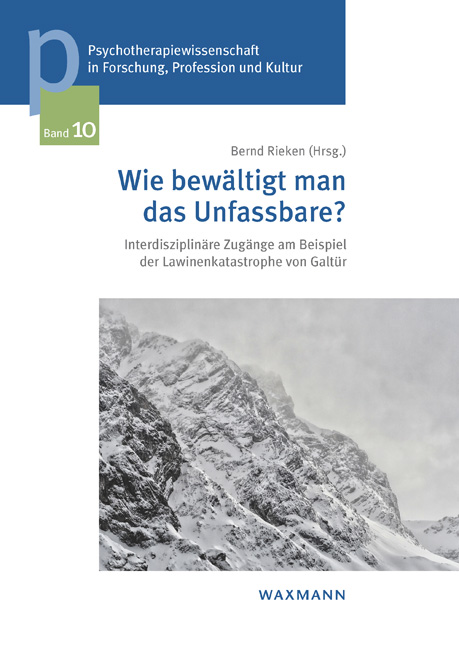 |
Wie bewältigt man das Unfassbare?Interdisziplinäre Zugänge am Beispiel der Lawinenkatastrophe von Galtür 2015, Psychotherapiewissenschaft in Forschung, Profession und Kultur, Band 10, 192 Seiten, broschiert, 29,90 €, ISBN 978-3-8309-3214-7 |
|
 |
Erzählen über KatastrophenBeiträge aus Deutscher Philologie, Erzählforschung und Psychotherapiewissenschaft 2016, Psychotherapiewissenschaft in Forschung, Profession und Kultur, Band 16, 288 Seiten, broschiert, 34,90 €, ISBN 978-3-8309-3489-9 |
|
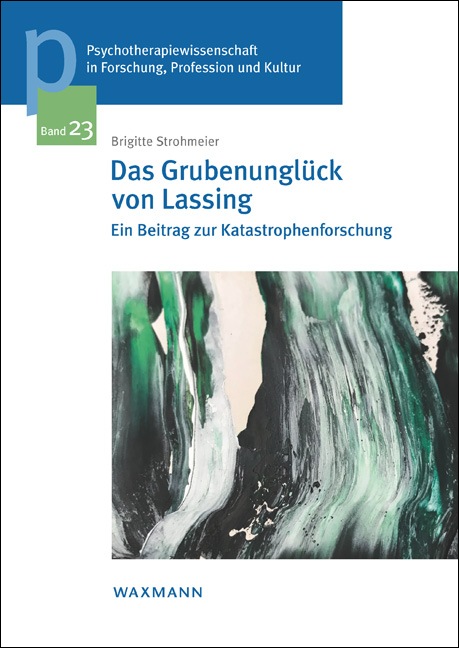 |
Das Grubenunglück von LassingEin Beitrag zur Katastrophenforschung 2018, Psychotherapiewissenschaft in Forschung, Profession und Kultur, Band 23, 366 Seiten, broschiert, 39,90 €, ISBN 978-3-8309-3817-0 |
|
 |
Wilde Nordsee: Katastrophen-Erleben auf den Halligen NordfrieslandsEine psychoanalytisch-ethnologische Studie 2019, Psychotherapiewissenschaft in Forschung, Profession und Kultur, Band 25, 258 Seiten, broschiert, 37,90 €, ISBN 978-3-8309-4010-4 |
|
 |
Angst in der KatastrophenforschungInterdisziplinäre Zugänge 2019, Psychotherapiewissenschaft in Forschung, Profession und Kultur, Band 27, 208 Seiten, broschiert, 29,90 €, ISBN 978-3-8309-4090-6 |
|
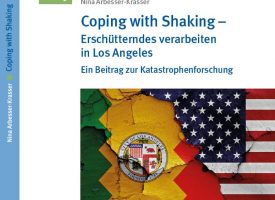 |
Coping with Shaking – Erschütterndes verarbeiten in Los AngelesEin Beitrag zur Katastrophenforschung 2021, Psychotherapiewissenschaft in Forschung, Profession und Kultur, Band 29, 225 Seiten, broschiert, 29,90 €, ISBN 978-3-8309-4298-6
|
|
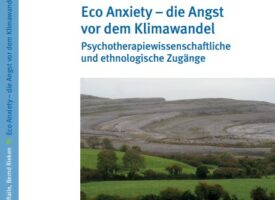 |
Eco Anxiety – die Angst vor dem KlimawandelPsychotherapiewissenschaftliche und ethnologische Zugänge 2021, Psychotherapiewissenschaft in Forschung, Profession und Kultur, Band 32, 228 Seiten, broschiert, 29,90 €, ISBN 978-3-8309-4372-3
|
|
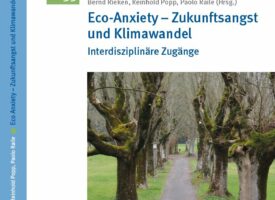 |
Eco Anxiety – Zukunftsangst und KlimawandelInterdisziplinäre Zugänge 2021, Psychotherapiewissenschaft in Forschung, Profession und Kultur, Band 33, 350 Seiten, broschiert, 34,90 €, ISBN 978-3-8309-4402-7
|
Contact
Head

Univ.-Prof. DDr. Bernd Rieken, CV, Publication list
bernd.rieken@sfu.ac.at
Team
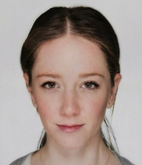
Univ.-Ass. Dr. Anna Jank-Humann, Publication list
anna.jank@sfu.ac.at
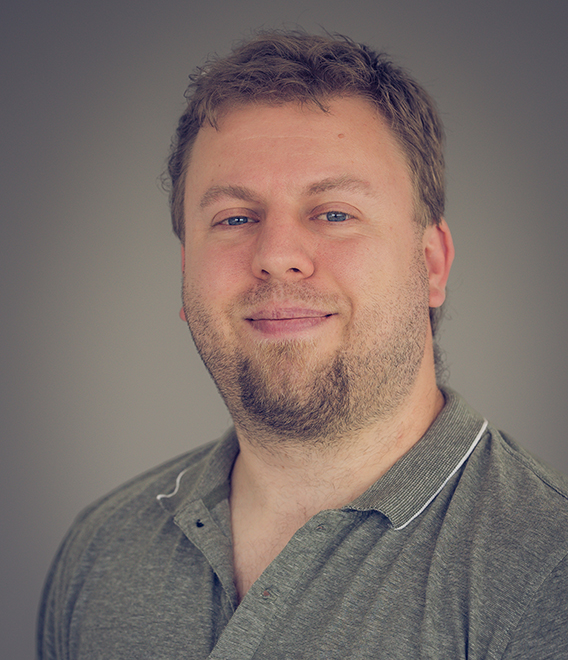
Priv.-Doz. Dr. Dr. Paolo Raile, MSc
paolo.raile@sfu.ac.at
Address
Institute for Psychoanalytical-Ethnological Disaster Research
Faculty of Psychotherapy Science
Sigmund Freud University
Freudplatz 1, 1020 Vienna